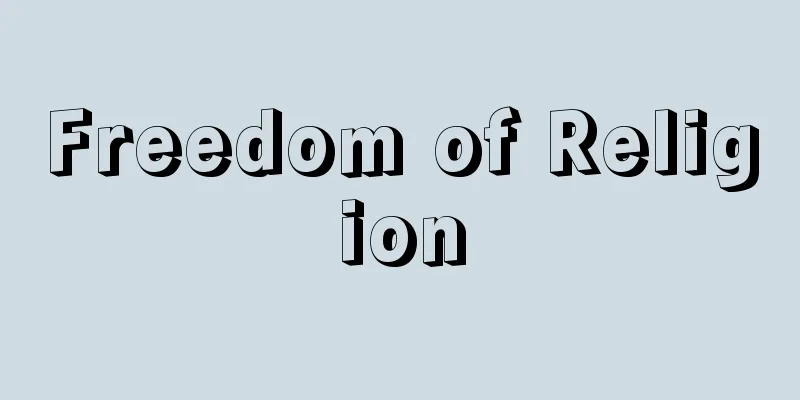Macedonia - Macedonia (English spelling)

|
The name of the region in the central Balkan Peninsula that spans three countries: Greece, Bulgaria, and the Republic of North Macedonia (formerly the Republic of Macedonia). Macedonia is the English spelling, Makedonia in modern Greek, Makedoniya in Bulgarian, and Makedonija in Macedonian. In 1913, after the end of the Second Balkan War, Macedonia was divided into three countries: Greece, Bulgaria, and the former Yugoslavia. Since then, the territories owned by each country have been called Aegean Macedonia, Pirin Macedonia, and Vardar Macedonia. The name Macedonia is sometimes used as a geographical concept, and sometimes as a political unit, such as the "Ancient Kingdom of Macedonia" and the "Republic of North Macedonia." The scope of these two terms does not necessarily coincide, and even when referring to political units, the "Ancient Kingdom of Macedonia" and the current "Republic of North Macedonia" are ethnically and linguistically different, so they should be clearly distinguished. [Chieko Ohba] In January 2019, the Republic of Macedonia changed its constitutional name to the Republic of North Macedonia. [Editorial Department, June 18, 2019] Geographical ConceptsThe geographical concept of Macedonia (English spelling) refers to the area of what is now northern Greece, the Republic of North Macedonia, and the Petrić region in southwestern Bulgaria. Its natural borders run along the Aliakmon River basin, which flows into the Thermaic Gulf (Aegean Sea) in Greece, through Lake Ohrid and the Bistra Mountains, which form the border between North Macedonia and Albania, through the Šar Mountains, which form the border between North Macedonia and Serbia, and then eastward to the Rhodope Mountains and the Nestos River basin in Bulgaria. The geographical concept of "Macedonia" became generally known in the 19th century when the Balkan countries gained independence from the Ottoman Empire, leading to a dispute between Serbia, Greece, and Bulgaria over the possession of the region. [Chieko Ohba] Political ConceptsMacedonia as a political unit can be seen as the "Ancient Kingdom of Macedonia" or the "Macedonian Dynasty" of the Byzantine Empire. These are usually written in Greek. The origin of the name Macedonia is said to be older than that of the Ancient Kingdom of Macedonia, and is derived from a people called "Macedon" who lived in the Ariakmon River basin. The territory of the "Ancient Kingdom of Macedonia", which existed from the 7th century BC to the 2nd century BC, was at its greatest during the eastern expedition of Alexander the Great, who gave birth to the word "Hellenism", and extended eastward more than the geographical area mentioned above. The Macedonian Dynasty of the Byzantine Empire (867-1057) ruled the Macedonian region in the first half of the 11th century, and at its peak included southern Italy and Syria, with the Balkan Peninsula and Asia Minor as its focus. Until the 14th century, the Macedonian dynasty repeatedly fought with the Second Bulgarian Empire over the possession of this region, but at the same time, during the reigns of Leon VI (reigned 886-912) and Constantine VII (reigned 913-959), a culture known as the Macedonian Renaissance flourished. However, this history of Macedonia was forgotten for a long time, and it was not until the so-called Renaissance in the 15th and 16th centuries that it was rediscovered in Western Europe. However, this did not refer to a specific political unit or geographical concept as it is today, but rather to a yearning for the spiritual climate unique to the Hellenistic culture that was born from the ancient Macedonian Kingdom. On the other hand, although Slavs began to live in the Macedonia region from the 6th century onwards, the name Macedonia in Slavic languages only came into widespread use in the 19th century. It originated from the Russian geographical notation Македония/Makedoniya. [Chieko Ohba] Macedonian problemThe Macedonian problem, in the narrow sense, refers to the international conflict over the sovereignty of the Macedonian region that arose in the late 19th and early 20th centuries, a so-called territorial dispute. In the broad sense, it is an ethnic problem that is related to the current Macedonian problem. The Macedonian problem in the narrow sense of the word followed the following developments. Most of the region was taken over by Bulgaria under the Treaty of San Stefano (1878), which was the peace treaty of the Russo-Turkish War, but shortly thereafter, due to the intervention of Austria-Hungary and Great Britain, who opposed Russia's southward expansion policy, the region was returned to the Ottoman Empire (Conference of Berlin, 1878). The problem was not only a dispute among the Balkan countries over the ownership of the Macedonian region under the Ottoman Empire, but also an aspect that was aggravated by the intervention of the great powers in deciding its ownership. Since then, the name Macedonia has come to refer to this place name with its political problems, rather than the unique spiritual culture that evokes ancient Macedonia. Thus, the situation of this region, where the ownership was changed regardless of the will of the residents amid the intertwining of the expansion of the great powers' sphere of influence and the independence of the Balkan countries, was called the "Macedonian problem." The "Macedonian problem" was resolved in 1913 when the region was divided among Greece, Serbia, and Bulgaria by the Treaty of Bucharest, the peace treaty of the Second Balkan War. Greece maintains that the "Macedonian problem" as a territorial issue was resolved by this partition of Macedonia. However, dissatisfaction with the territorial determination at this time simmered in other Balkan countries, especially Bulgaria, and became the catalyst for Bulgaria's entry into World War I and World War II. Furthermore, in the midst of this territorial dispute, the broader Macedonian problem arose. The Slavic people living in this region were forced to become aware of their ethnic identity, and for the first time, the expression "Macedonians (Makedonets)" was used in Slavic to mean "those who live in the Macedonian region." The "Macedonians" who bear the sovereignty of the Republic of Macedonia refer to these Slavic people, and have no relation to the Greek Macedonians who recall the ancient Kingdom of Macedonia. This fact gave birth to a new "Macedonian problem." The Slavic "Macedonians" were recognized as an indigenous ethnic group bearing the sovereignty of the Republic for the first time in the Yugoslav Federation (former Yugoslavia) established after the Second World War. Traditionally, they were considered to be Serbs, Bulgarians, or Slavic-speaking Greeks. Even now, after the independence of the Republic of Macedonia, Greece and Bulgaria, while recognizing the Republic of Macedonia as a nation, do not recognize the "Macedonians" as an ethnic group. For Greece, the "Macedonians" are merely an ancient Greek ethnic group. On the other hand, for Bulgaria, the Macedonian language is merely a dialect of the Bulgarian language. However, it cannot be overlooked that the "Macedonians" who bear the Republic of Macedonia have cultivated their ethnic consciousness as "Macedonians" over the 60 years since the end of the Second World War. In other words, the current "Macedonian problem" has changed in character from a diplomatic issue over the geographical ownership of Macedonia to an ethnic problem over the ethnic consciousness of the Slavs living in the region. Naturally, this ethnic problem has had an impact on the relationship between the Republic of Macedonia and its neighboring countries, making the problem even more complicated. [Chieko Ohba] historyThe ancestors of the Macedonians, who became the central power in Macedonia in historical times, first lived in southern Macedonia, upstream of the Ariakmon River, and then moved north around 1100 BC, making Aegai their capital, and the Macedonian royal family (called the Argeadai, meaning the House of Argead, or the Temenidae, meaning the House of Temenos) ruled over the area. The first king, Perdiccas I, lived in the first half of the 7th century BC. After the Dorian invasion, the Macedonians were invaded by Illyrians, Thracians, and various other ethnic groups over the centuries, and they became a mixed race. There is no consensus on how their language should be classified linguistically, but the theory that it is a branch of Greek is currently the most popular. Greek scholars in particular strongly advocate this, and the debate over the attribution of the Macedonian language is a good example of the close relationship between language and ethnic issues. In the 5th century BC, Alexander I and Perdiccas II skillfully expanded their power by taking advantage of the chaos caused by the Persian Wars and the Peloponnesian Wars. Although they were despised by the Greeks as "barbarians," Macedonia made an effort to import Greek culture, especially after King Archelaus. During the reign of Philip II (reigned 359-336 BC), Macedonia became the most powerful country in the Greek world both militarily and economically. His son Alexander the Great conquered all of Greece, then marched eastward, conquered the Persian Empire, and created a world empire (Alexander's Empire) that spanned both the East and the West. This political situation was an opportunity to fuse Greek and Oriental cultures and create a distinctive Hellenistic culture, but Macedonia never played a leading role culturally. This great empire was left incomplete when Alexander the Great died in 323 BC. Soon after, his successors (Diadochi) began to compete for power within the empire, and although cultural homogeneity was maintained, political unity soon collapsed. Macedonia was forced to submit to Rome, which was advancing eastward (168 BC), and then became a province of Rome in 146 BC. After the Roman Empire was divided into Eastern and Western Macedonia (AD 395), it continued to exist as a territory of the Eastern Roman Empire. From around the 6th century AD, Slavs gradually migrated there, and in the Middle Ages it was subjected to the Kingdom of Bulgaria and Serbia. It then became a territory of the Ottoman Empire, which advanced into the Balkan Peninsula in the 14th century, and was ruled by Turkey for over 500 years thereafter. In the 19th century, in response to Turkey's decline and the movement of nationalism, the movement for national self-determination and independence intensified in the Balkans, and Macedonia was caught up in the vortex. Not only political conflicts but also conflicts arose in all aspects, including ethnicity, religion, and language. Although most of the residents are Macedonian, there are also Greeks, Albanians, Romanians, Turks, and others, and religions include Islam, Catholicism, and Greek Orthodoxy, making it a melting pot of ethnicities and religions. Incidentally, the name macédoine, a salad made of a combination of various vegetables, actually comes from this ethnic mix. The Greek War of Independence, which broke out in 1820 and aimed to liberate Greece from Turkish rule, and its achievement of independence, are events that symbolize the beginning of ethnic conflicts in the modern Balkans, and the Russo-Turkish War from 1877 to 1878 was a major catalyst that intensified these conflicts. Russia, the victor of this war, forced Turkey to recognize the establishment of the Grand Bulgarian Principality, which included Macedonia, in the Treaty of San Stefano concluded after the war. However, this was also annulled at the Berlin Conference, and Macedonia was returned to Turkey. Since then, the dispute over Macedonia has become a central issue in the Balkan problem, and is still a cause of political instability today. After the First Balkan War (1912), Macedonia finally broke out of Turkish rule, but in 1913, the Second Balkan War broke out over the issue of Macedonia's sovereignty, and it was ceded to Bulgaria, Greece, and Serbia (Treaty of Bucharest) against the wishes of the Internal Macedonian Revolutionary Organization, which was formed in 1893 under the slogan "Macedonia for the Macedonians." This tripartite division was finalized by the Treaty of Neuilly after World War I, although it underwent some changes, but border disputes continued thereafter. At one point during World War II, almost the entire Macedonia was placed under the control of Bulgaria, an ally of Nazi Germany, and immediately after the war, the Cominform, led by the Soviet Union, advocated for the establishment of an independent state of Macedonia, but after 1947 it was divided into Bulgaria, Greece, and Yugoslavia, and so on, and so on. Among these, the Republic of Macedonia, which secured independence for the first time in the history of its people and became a part of the Socialist Federal Republic of Yugoslavia, declared its independence in September 1991, amid the turmoil of civil war and national disintegration that began with the death of Federal Republic President Tito in 1980, and the collapse of the Cold War system after World War II, and in November it established a constitution, taking a step towards becoming an independent nation. However, Albanians, who make up more than 20% of the population, insist on national self-determination, and in terms of external relations, it has been in conflict with Greece, which also has a region called Macedonia, over the country's name and flag. Greece has rejected the name Macedonia, and refers to the inhabitants as South Slavs or Skopje people rather than Macedonians, and in 1994 imposed an economic blockade on the country, and has urged the European Union (EU), which is trying to resolve the Yugoslav civil war from the perspective of European stability, not to recognize it. When the country joined the United Nations in April 1993, it was recognized under the provisional name Former Yugoslav Republic of Macedonia, not Republic of Macedonia. Japan recognized it in December of the same year, and diplomatic relations between the two countries were established in March of the following year, 1994. Greece also objected to the flag of the Republic of Macedonia, which features a sun, claiming that this was the family crest of the ancient Macedonian dynasty. In 1995, a provisional agreement was reached in which the Republic of Macedonia changed its flag at the request of Greece, and the Greek territorial claims to the Macedonian state were deleted from the constitution, while Greece recognized the Republic of Macedonia as a state and lifted economic sanctions. However, the issue of what to do with the country's name, Macedonia, remains unresolved, and Macedonia faces a difficult future both domestically and internationally. Even when NATO (North Atlantic Treaty Organization) forces bombed Yugoslavia in 1999, Macedonia was cautious about accepting Albanian refugees, and even after accepting them, it suddenly moved them away, giving a glimpse of the country's complex stance toward its neighboring countries. [Hidenobu Mashita] In June 2018, an agreement was signed with Greece to use the name "Republic of North Macedonia". The constitutional name was changed in January 2019, and in February of the same year, it was recognized by the United Nations and officially began to be used as "Republic of North Macedonia". [Editorial Department, June 18, 2019] "Modern Balkan History" by Kido Tsutomu (1977, Yamakawa Publishing)" ▽ "Balkan History" by C&B Jelavich, translated by Harano Miyoko (1982, Kobunsha)" ▽ "History of Yugoslavia" edited by Stephen Clissold, translated by Tanaka Issei, Shiba Yoshihiro, and Takada Toshiaki (1993, Kobunsha)" ▽ "The Tragedy of the Mosaic State of Yugoslavia" by Tokunaga Akisaku (1995, Chikuma Shobo)" ▽ "Balkan History" edited by Shiba Yoshihiro (1998, Yamakawa Publishing)" ▽ "Modern Yugoslav History" by Shiba Yoshihiro (Iwanami Shinsho) [References] | | | | | | | | | | | | | |Source: Shogakukan Encyclopedia Nipponica About Encyclopedia Nipponica Information | Legend |
|
ギリシア、ブルガリア、北マケドニア共和国(旧、マケドニア共和国)の3国にまたがるバルカン半島中央部の地方名。Macedoniaは英語綴(つづ)りで、現代ギリシア語ではMakedonia、ブルガリア語ではMakedoniya、マケドニア語ではMakedonija。 マケドニアは1913年、第二次バルカン戦争終結後にギリシア、ブルガリア、旧ユーゴスラビアの3国に分割されたが、それ以降、それぞれの国に領有された領域をエーゲ・マケドニア、ピリン・マケドニア、バルダル・マケドニアと称することがある。マケドニアという名称は、地理的な概念として用いられる場合と、「古代マケドニア王国」や「北マケドニア共和国」などのように政治的単位として用いられる場合とがある。これら両者の示す範囲は、かならずしも一致せず、政治的単位を示す場合でも、「古代マケドニア王国」と現在の「北マケドニア共和国」とは、同じマケドニアという呼称を用いてはいても、民族的にも言語的にも異なり、明確に区別して考えるべきである。 [大庭千恵子] なお、「マケドニア共和国」は2019年1月に憲法上の国名を「北マケドニア共和国」に変更した。 [編集部 2019年6月18日] 地理的概念地理的な概念としてのマケドニアMacedonia(英語表記)は、現在のギリシア北部地域、北マケドニア共和国、ブルガリア西南部のペートリッチ地方をさす。その自然の境界はギリシア領内のテルマイコス湾(エーゲ海)に流れ込むアリアクモン川流域に沿って、北マケドニア共和国とアルバニアとの国境をなすオフリド湖やビストラ山脈、同共和国とセルビアとの国境でもあるシャール山脈を経て東に向かい、ブルガリア領内のロドピ山脈からネストス川流域に至る。なお、このような地理的概念としての「マケドニア」が一般に知られるようになったのは、19世紀にオスマン帝国からバルカン諸国が独立する過程で、セルビア、ギリシア、ブルガリアの3国がこの地域の領有をめぐって相争う事態を招いたことによる。 [大庭千恵子] 政治的概念政治的単位としてのマケドニアは、「古代マケドニア王国」や、ビザンティン帝国の「マケドニア朝」があげられる。これらは通常ギリシア語で表記される。本来マケドニアという名称の語源は古代マケドニア王国よりも古く、アリアクモン川流域に居住した一民族「マケドン」に由来するといわれている。紀元前7世紀から前2世紀にかけて存在した「古代マケドニア王国」の版図は、「ヘレニズム」ということばを生んだアレクサンドロス大王の東方遠征期を最大として、上記の地理的範囲よりも大きく東方へと開けている。また、ビザンティン帝国マケドニア朝(867~1057)は、11世紀前半にマケドニア地方を支配し、最盛期の版図はバルカン半島から小アジアを中心に、南イタリアとシリアを含んでいた。マケドニア朝は14世紀に至るまで第二次ブルガリア帝国とこの地域の領有をめぐって攻防を繰り返したが、一方ではレオン6世(在位886~912)とコンスタンティノス7世(在位913~959)の時代には、いわゆるマケドニア朝ルネサンスとよばれる文化が花開いた。しかし、こうしたマケドニアをめぐる歴史は長く忘却されており、これが西欧で再発見されたのは、15、16世紀のいわゆるルネサンスの時代であった。ただし、それは今日のような特定の政治的単位や地理的な概念を示すものではなく、古代マケドニア王国の生んだヘレニズム文化特有の精神風土への憧憬(しょうけい)であった。 一方、マケドニア地方にスラブ人が居住し始めたのは6世紀以降であるが、スラブ語でマケドニアという名称が広く用いられるようになったのは、19世紀に入ってからである。それは、ロシア語による地理学の表記Македония/Makedoniyaに端を発する。 [大庭千恵子] マケドニア問題マケドニア問題は、狭義には19世紀末から20世紀初頭にかけて生じたマケドニア地域の領有をめぐる国際紛争をさし、いわゆる領土問題である。広義には現在のマケドニア問題に通じる民族問題である。 狭義のマケドニア問題は以下の展開をたどった。この地域は、ロシア・トルコ戦争の講和条約であるサン・ステファノ条約(1878)により大部分をブルガリアが領有したが、その直後にロシアの南下政策に反対するオーストリア・ハンガリーとイギリスの干渉で、オスマン帝国の領土に復された(ベルリン会議、1878)。問題は、オスマン帝国下のマケドニア地方の領有をめぐるバルカン諸国の抗争という面だけでなく、その帰属の決定に関する列強の介入により深刻化した側面をもつ。これ以後、マケドニアという名称は古代マケドニアから想起させる独自の精神風土よりはむしろ、この政治問題を抱えた地名を意味するものとして流布した。このように、列強の勢力範囲の拡大とバルカン諸国の独立が絡みあうなかで、住民の意志とは無関係に帰属が変更されるという、この地域の状況を「マケドニア問題」とよんだ。「マケドニア問題」は、1913年に第二次バルカン戦争の講和条約(ブカレスト条約)によってこの地域がギリシア、セルビア、ブルガリア間で分割されて終息する。ギリシアは、このマケドニア分割によって領土問題としての「マケドニア問題」は解決したという立場をとっている。ただし、このときの領土確定への不満はほかのバルカン諸国、とくにブルガリアにくすぶり、同国が第一次および第二次世界大戦に参戦する契機となった。 また、こうした領土問題としての展開のなかで、広義のマケドニア問題が発生することになった。この地域に居住するスラブ人が自分たちの民族意識の自覚を迫られることになり、ここで初めて、スラブ語でも「マケドニア地域に住む者」を意味する「マケドニア人Македонец/Makedonets」という表現が用いられるようになった。マケドニア共和国の主権の担い手である「マケドニア人」は、このスラブ人のことであり、古代マケドニア王国を想起させるギリシア系のマケドニア人とは関係がない。この事実が、新たな「マケドニア問題」を生むことになった。 スラブ人の「マケドニア人」は、第二次世界大戦を経て成立したユーゴスラビア連邦(旧ユーゴスラビア)において初めて、共和国の主権をになう固有の民族として承認された。従来、彼らは、セルビア人やブルガリア人、あるいはスラブ語を話すギリシア人とみなされていた。マケドニア共和国が独立した現在においても、ギリシアとブルガリアは、マケドニア共和国を国家としては承認しながらも、「マケドニア人」を民族としては認めない立場をとっている。ギリシアにとって、「マケドニア人」とは古代から続くギリシア系の民族でしかない。一方、ブルガリアにとって、マケドニア語はブルガリア語の一方言でしかないからである。とはいえ、マケドニア共和国をになう「マケドニア人」が、第二次世界大戦後60年を通じて「マケドニア人」としての民族意識を培ってきた面も看過しえない。つまり、現在の「マケドニア問題」は、往時にみられたような、地理的概念としてのマケドニアの帰属をめぐる外交問題から、その地域に住むスラブ人の民族意識をめぐる民族問題へと性格を変えてきたのである。当然、民族問題がマケドニア共和国と近隣諸国との関係に影響をもたざるをえず、問題をいっそう複雑にしている。 [大庭千恵子] 歴史歴史時代のマケドニアの中心勢力となったマケドニア人の祖先は、初めマケドニア南部、アリアクモン川上流に居住、紀元前1100年ごろより北進し、アイガイを首都と定め、マケドニア王家(アルゲアス家を意味するアルゲアダイまたはテーメノス家を意味するテーメニダイとよばれた)の支配するところとなった。初代の王ペルディッカス1世は前7世紀前半の人である。なお、ドーリス人の侵入後、数世紀にわたりイリリア人やトラキア人、その他さまざまな民族の侵入を受け、マケドニア人は混血民族を形成することになった。彼らのことばは言語学的にどう分類すべきか定説はないが、ギリシア語の一派とする説が今日有力である。とくにギリシアの学者たちが強力に主張しており、マケドニア語の帰属をめぐる論争は言語と民族問題が緊密な関係にあることを示すよい例である。 前5世紀、アレクサンドロス1世やペルディッカス2世はペルシア戦争やペロポネソス戦争の混乱に乗じ巧みに勢力拡張に努めた。また、ギリシア人から「バルバロイ」(夷狄(いてき))と軽蔑(けいべつ)されていたが、とくにアルケラオス王以後ギリシア文化の輸入に努めた。フィリッポス2世(在位前359~前336)のころには軍事的にも経済的にもギリシア世界の最有力国となった。彼の息子アレクサンドロス大王は全ギリシアを制覇したのち、東方遠征を行い、ペルシア帝国を征服し東西にまたがる世界帝国(アレクサンドロス帝国)を現出させた。こうした政治状況はギリシア文化とオリエント文化を融合させ、特色あるヘレニズム文化を生み出す契機となったが、マケドニアは文化的に指導的役割を果たすことはなかった。 この大帝国も未完のまま紀元前323年にアレクサンドロス大王が没すると、まもなく後継者たち(ディアドコイ)が帝国内に群雄割拠し、文化的均質性は維持されたものの政治的統一はただちに瓦解(がかい)し、マケドニアは東方進出のローマにあえなく服属(前168)、続いて前146年にはその属州となった。ローマ帝国の東西分裂(後395)後は東ローマ領として存続した。紀元後6世紀ごろより漸次スラブ人が移住し、中世にはブルガリアやセルビア王国に服属した。その後、14世紀バルカン半島に進出してきたオスマン帝国の領地となり、以後500年以上にわたりトルコの支配を受けた。 19世紀になり、トルコの衰退と国民主義の動きに呼応してバルカン半島でも民族自決、独立運動が激化すると、マケドニアもその渦中に巻き込まれていった。政治的対立のみか、民族、宗教、言語とあらゆる面で抗争が派生した。住民の多くはマケドニア人とはいえ、ギリシア人、アルバニア人、ルーマニア人、トルコ人等々もおり、宗教は、イスラム教、カトリック、ギリシア正教などが混在し、まさに民族、宗教のるつぼである。ちなみに、種々の野菜を組み合わせたサラダをマセドワーヌ(macédoine)とよぶのは実にこの民族混在に由来する。1820年に勃発(ぼっぱつ)したトルコ支配からの解放を目ざすギリシアの独立戦争と独立達成は近代バルカン半島の民族対立の始まりを象徴する事件であり、1877年から1878年にかけてのロシア・トルコ戦争(露土戦争)はこうした対立を激化させる大きな契機となった。この戦争の勝利国ロシアは戦後締結したサン・ステファノ条約でマケドニアを含む大ブルガリア公国の建国をトルコに承認させた。しかし、これもベルリン会議で破棄されマケドニアはトルコに返還された。以後、マケドニア領有争いはバルカン問題の中心的課題となり、今日なお政情不安の一因となっている。 第一次バルカン戦争(1912)後、ようやくトルコの支配を脱却したのもつかの間、翌1913年マケドニアの帰属問題をめぐり第二次バルカン戦争が勃発し、「マケドニア人のためのマケドニア」を掲げて1893年に結成された「内部マケドニア革命組織」の意に反してブルガリア、ギリシア、セルビアに割譲された(ブカレスト条約)。この3分割体制は、変更をうけながらも第一次世界大戦後のヌイイ条約により確定したが、国境紛争はその後も続くことになる。第二次世界大戦中の一時、ほぼ全マケドニアがナチス・ドイツの同盟国ブルガリアの支配下に置かれたり、大戦直後にはソ連を指導者とするコミンフォルムが独立国家マケドニアの建国を擁護したが、1947年以後はブルガリア、ギリシア、ユーゴスラビアに分割所属し、その後の歴史を歩むことになる。 このうち、民族史上初めて独立を確保し、ユーゴスラビア社会主義連邦共和国に帰属したマケドニア共和国は、1980年連邦共和国大統領チトーの死に始まる内乱と国家解体の動乱のなか、さらに第二次世界大戦後の冷戦体制崩壊途上の1991年9月、マケドニア共和国独立宣言を出し、11月には憲法を制定して独立国家への一歩を進めた。しかし、国民の20%を超えるアルバニア人は民族自決を主張しているうえに、対外関係をみると、同じくマケドニアとよばれる地方をもつギリシアと国号や国旗をめぐり対立した。ギリシアはマケドニアの国号を拒否、住民を称するときにマケドニア人ではなく南スラブ人とかスコピエ人等の呼称を用いているうえに、1994年には経済封鎖を加え、ヨーロッパ安定の視点からユーゴ内戦の解決に腐心するEU(ヨーロッパ連合)諸国に承認しないように働きかけた。1993年4月の国連加盟においても、マケドニア共和国ではなくマケドニア旧ユーゴスラビア共和国Former Yugoslav Republic of Macedoniaという暫定的国名で承認された。なお、日本が承認したのは、同年12月で、翌1994年の3月に両国の外交関係が樹立された。さらにマケドニア共和国が採用した太陽をあしらった国旗に対しても、これは古代マケドニア王朝の家紋であるとギリシアは異議をとなえた。マケドニア共和国がギリシアの要求をいれて国旗を改め、ギリシアのマケドニア州に対する領土要求を憲法条項から削除する一方、ギリシアはマケドニア共和国を国家として承認し、経済制裁を解除するとの暫定合意に達したのは1995年である。しかし、国名マケドニアをどうするかの問題は依然として未解決で、内外ともにマケドニアの前途は多難である。1999年NATO(北大西洋条約機構)軍のユーゴ空爆のときも、マケドニアはアルバニア人難民受入れに慎重な態度をとり、かつ受入れ後も突如難民を移動させるなど、近隣諸国にたいするこの国の複雑な立場の一端がかいまみられた。 [真下英信] 2018年6月、ギリシアとの間で「北マケドニア共和国」を国名とする合意が結ばれた。翌2019年1月には憲法上の国名が変更され、同年2月に国連にも認められて公式に「北マケドニア共和国」が使用されるようになった。 [編集部 2019年6月18日] 『木戸蓊著『バルカン現代史』(1977・山川出版社)』▽『C&B・ジェラヴィチ著、原野美代子訳『バルカン史』(1982・恒文社)』▽『スティーヴン・クリソルド編、田中一生・柴宜弘・高田敏明共訳『ユーゴスラヴィア史』(1993・恒文社)』▽『徳永彰作著『モザイク国家ユーゴスラビアの悲劇』(1995・筑摩書房)』▽『柴宜弘編『バルカン史』(1998・山川出版社)』▽『柴宜弘著『ユーゴスラヴィア現代史』(岩波新書)』 [参照項目] | | | | | | | | | | | | | |出典 小学館 日本大百科全書(ニッポニカ)日本大百科全書(ニッポニカ)について 情報 | 凡例 |
Recommend
Johannes von Tepl
1350?-1414 A Bohemian (Czech) author of the late M...
Ogura Family Residence - Ogura House
…It is a mountain village in the Ryohaku Mountain...
Hara
[1] 〘 noun 〙① A flat and wide place. Especially, u...
Market Peace - Ichiba Heiwa
…The market was located in the center of the town...
Accompaniment - Bansou (English spelling)
A vocal part that melodically and harmonically su...
Heian-kyo
It was an ancient Japanese imperial capital datin...
Campagnola, G. (English spelling) Campagnola G
…There are engravings and etchings. Giulio Campag...
Polymenorrhea
...Menopause before age 40 is called early menopa...
Pyroclastic flow
A phenomenon in which volcanic ash, volcanic gas,...
Battle of Kosovo - Battle of Kosovo
In 1389, the Ottoman Empire, which had been advanc...
ADCC
antibody-dependent cell-mediated cytotoxicity, ant...
Petr Chelčický
A minor nobleman and lay monk from southern Bohemi...
Ikeda Mitsumasa Diary - Ikeda Mitsumasa Diary
This is a 21-volume handwritten diary by Ikeda Mit...
Azusa Shrine Maiden - Azusa Miko
catalpa bow Azusa Yumi A woman who strikes the st...
Nestle [company] - Nestle
The world's largest general food manufacturer....









